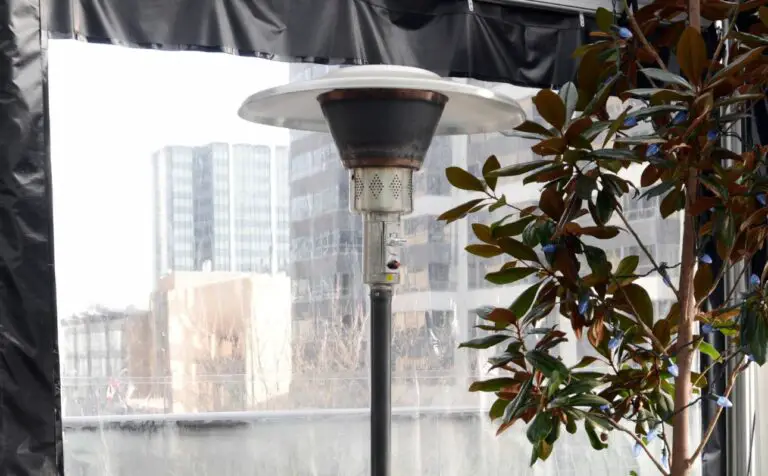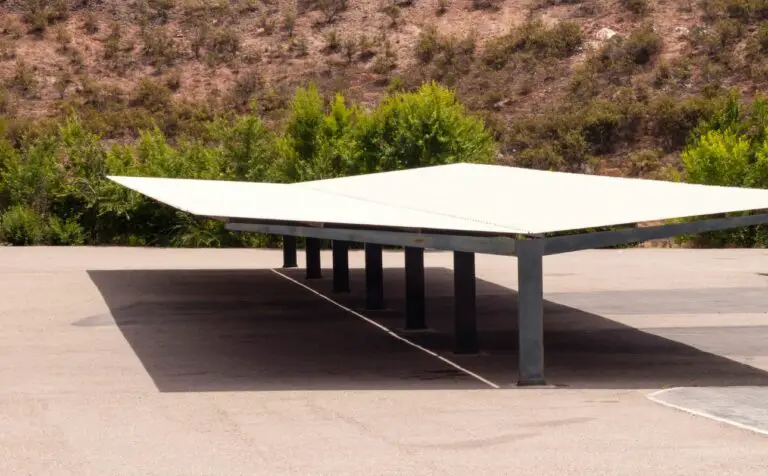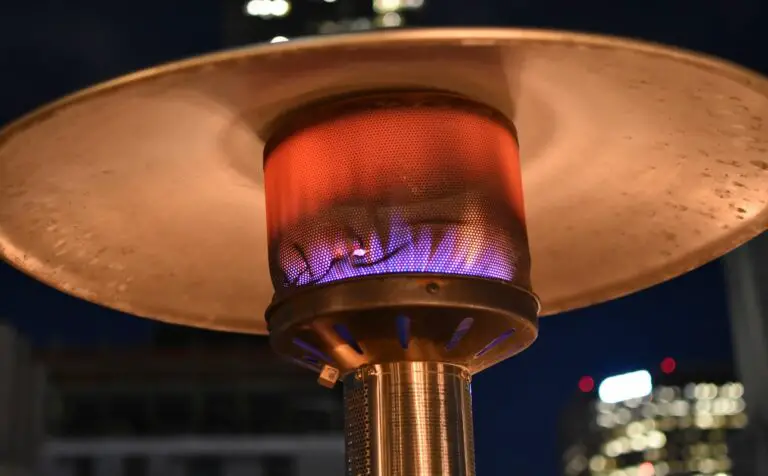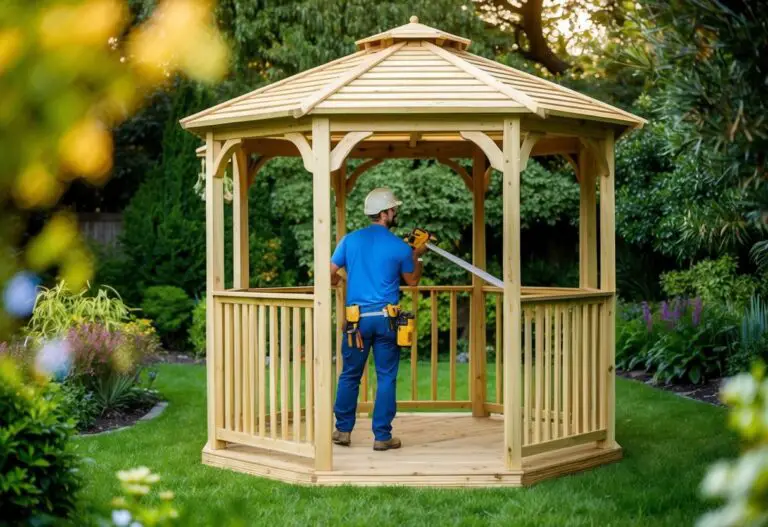Versatube carports have gained popularity in recent years due to their affordability, durability, and versatility. They offer an alternative solution for those seeking a reliable shelter for their vehicles or outdoor equipment without having to build a permanent structure.
The question remains: are versatube carports any good? In this article, we will examine the benefits and drawbacks of Versatube carports to provide readers with an objective analysis of the product.
This guide aims to help readers make informed decisions when considering purchasing a Versatube carport by providing comprehensive information on its features, maintenance requirements, and customer reviews.
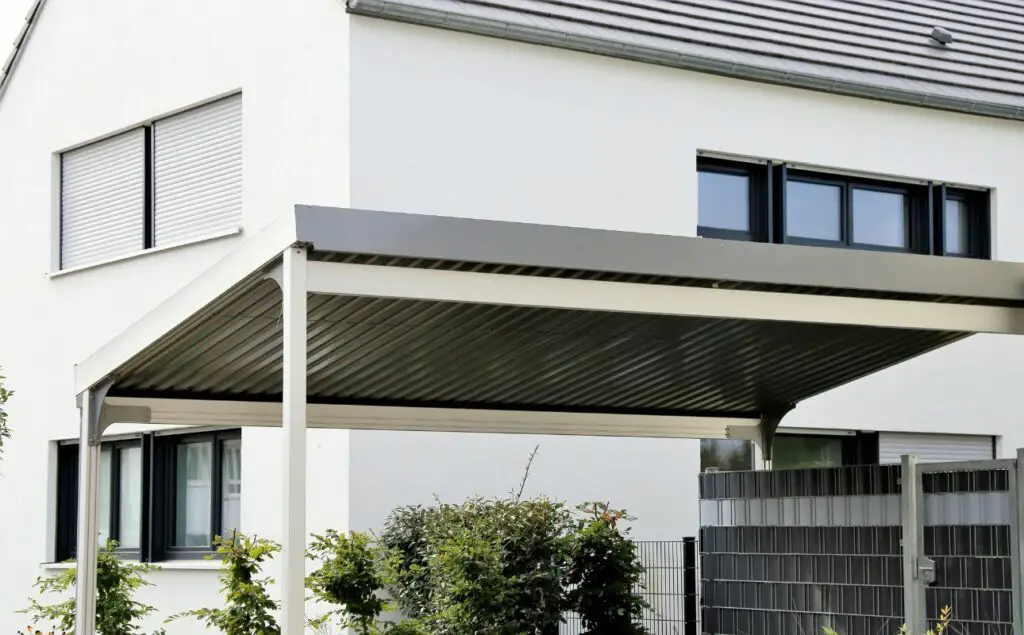
Benefits of Versatube Carports
The advantages of Versatube carports are numerous, starting with design flexibility. These structures come in a wide range of sizes, shapes, and colors to fit any landscape or architectural style.
They are cost-effective compared to traditional garages or other types of outdoor storage spaces. The easy installation process also adds to the benefits of these carports. With a few basic tools and some DIY knowledge, anyone can assemble their own Versatube carport within hours rather than waiting for weeks for a contractor’s availability.
Lastly, durability is another advantage worth mentioning; thanks to the material composition used in manufacturing these carports, they can withstand harsh weather conditions such as heavy snowfall or strong winds without getting damaged.
Durability in Harsh Weather Conditions
Durability in harsh weather conditions is crucial when selecting a carport for protection against the elements.
One important consideration is the strength of galvanized steel, which can affect how well the structure withstands heavy loads and impacts from wind-blown debris.
Resistance to wind, rain, and snow are also key factors, as these elements can cause damage or collapse if the carport is not designed to withstand harsh weather conditions.
Strength of Galvanized Steel
It is quite remarkable that despite the impressive strength of galvanized steel, it is still somehow unable to uphold the reputation of a certain brand’s carports.
Versatube carports are made from high-quality galvanized steel, which has been treated with a zinc coating to prevent corrosion and rusting. This gives them an excellent weight capacity and makes them highly durable in harsh weather conditions.
Some customers have reported issues with the structural integrity of these carports, particularly when subjected to strong winds or heavy snowfall. Despite their sturdy construction and corrosion prevention measures, Versatube carports may not be able to withstand extreme weather conditions as well as other brands on the market.
Resistance to Wind, Rain, and Snow
Versatube carports are made with high-quality galvanized steel that has been proven to withstand extreme winds, heavy rainfall, and snow loads.
The installation process of these carports is relatively easy compared to traditional structures such as wood or concrete garages and can be completed within a few hours. A cost comparison between versatube carports and other materials shows that they are more affordable.
When it comes to maintenance requirements, galvanized steel requires minimal upkeep due to its corrosion-resistant properties, making it an ideal material for outdoor structures like carports.
Maintenance Requirements
Regular maintenance is essential for the proper functioning and longevity of metal structures such as carports, ensuring that they remain free from corrosion, rust, and other damage.
Versatube carports are no exception to this rule. Although they are designed with durable materials that resist weathering, regular upkeep is necessary to keep them in good condition.
The cost comparison between maintaining a versatube carport versus other types of shelters may vary depending on factors such as size and location. However, compared to traditional wooden structures or brick garages that require painting or sealing every few years, a metal carport like Versatube requires less maintenance overall.
The installation process of these structures is relatively straightforward and may not require professional assistance if you have some DIY skills.
Drawbacks of Versatube Carports
One major drawback of metal carports like Versatube is that they may not be as durable as other materials like wood or concrete. While they are often advertised as being resistant to rust and corrosion, heavy winds or hail storms can cause damage to the structure.
Compared to other types of carport materials, such as wood or brick, metal carports have limited customization options and may not blend in with the surrounding architecture.
Another potential drawback is that while Versatube carports can be cost-effective compared to building a garage from scratch, the installation process can still be expensive and time-consuming.
These factors should be considered before making a decision on purchasing a Versatube carport. In the next section about customer reviews and recommendations, we will further explore how these drawbacks impact real customers’ experiences with Versatube carports.
Customer Reviews and Recommendations
Moving on from the drawbacks of Versatube carports, let’s take a look at what customers have to say about them. Customer reviews and recommendations can provide valuable insights into the product’s functionality and usability.
Based on customer feedback, here are the pros and cons of owning a Versatube carport:
Pros:
- The installation process is relatively easy and can be done by one person
- There are many customization options available, including different sizes, colors, and accessories
Cons:
- Some customers have reported issues with rusting or bending of the metal frame
- Others have experienced leaks during heavy rain or snowfall.
It’s important to note that while some customers have had negative experiences with their Versatube carports, many others have been satisfied with their purchase. As with any product, it’s essential to do your research before making a decision.
The Bottom Line
Versatube carports offer numerous benefits such as being cost-effective, versatile in design, and easy to install. They are also known for their durability in harsh weather conditions, making them a practical choice for protecting vehicles or equipment from the elements.
Despite these advantages, there are also some drawbacks to consider with Versatube carports. Some customers have reported difficulty with installation due to unclear instructions or missing parts. Others have noted that the carports may not be as sturdy as traditional garages or carports made of different materials.
When considering whether Versatube carports are suitable for your needs, it is important to weigh the pros and cons carefully. While they offer many advantages over other types of structures, they may not be the best fit for everyone.
Frequently Asked Questions
How difficult is it to install a Versatube carport?
The difficulty level of installing a Versatube carport can vary depending on an individual’s experience and familiarity with construction tasks. However, Versatube carports are designed to be relatively easy to install, with clear instructions and assembly components provided, making it manageable for most DIY enthusiasts.
Are there any customization options available for Versatube carports?
Yes, Versatube offers customization options for their carports. Customers can choose from various sizes, styles, colors, and additional features such as side panels, end walls, and doors. These options allow customers to tailor the carport to their specific needs and preferences.
Can a Versatube carport be moved or relocated once it is installed?
Once installed, Versatube carports have the flexibility to be moved or relocated. Due to their assembly using bolted connections, they can be easily disassembled and reassembled in a new location. However, it is important to note that moving the carport will involve some exertion and may necessitate extra tools or assistance.
What type of foundation is required for a Versatube carport?
Versatube carports typically require a solid and level foundation for optimal stability. This can include options such as concrete footings, concrete slabs, or even compacted gravel. The specific foundation requirements may vary depending on factors like the size and local building codes, so it is advisable to consult the product manual or Versatube for guidance.
Are there any specific permits or building codes that need to be followed when installing a Versatube carport?
Yes, specific permits and building codes may apply when installing a Versatube carport. The requirements can vary depending on your location and local regulations. It is important to check with your local building department or municipality to determine the necessary permits and codes that need to be followed for a proper and legal installation.

